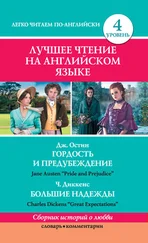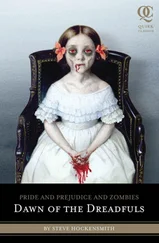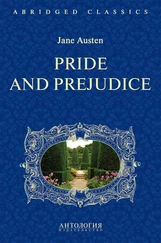“My dear Lizzy, do not give way to such feelings as these. They will ruin your happiness. You do not make allowance enough for difference of situation and temper. For someone who so often speaks of our dear master, I fear you have forgotten much of his wisdom! Were we not taught to temper our feelings? We must not be so ready to fancy ourselves intentionally injured. It is very often nothing but our own vanity that deceives us.”
“I am far from attributing any part of Mr. Bingley’s conduct to design,” said Elizabeth; “but without scheming to do wrong, or to make others unhappy, there may be error, and there may be misery. Thoughtlessness, want of attention to other people’s feelings, and want of resolution-grave offenses to one’s honour, all.”
“And do you impute it to either of those?”
“Yes; to the last. But if I go on, I shall displease you by saying what I think of persons you esteem. Stop me whilst you can.”
“You persist, then, in supposing his sisters influence him?”
“I believe it so ardently as to offer you my sword in their vanquishing.”
“I cannot believe it. Why should they try to influence him? They can only wish his happiness; and if he is attached to me, no other woman can secure it.”
“Your first position is false. They may wish many things besides his happiness; they may wish his increase of wealth and consequence; they may wish him to marry a girl who has all the importance of money, great connections, and pride.”
“Beyond a doubt, they do wish him to choose Miss Darcy,” replied Jane; “but this may be from better feelings than you are supposing. They have known her much longer than they have known me; no wonder if they love her better. But, whatever may be their own wishes, it is very unlikely they should have opposed their brother’s. What sister would think herself at liberty to do it? If they believed him attached to me, they would not try to part us; if he were so, they could not succeed. By supposing such an affection, you make everybody acting unnaturally and wrong, and me most unhappy. Do not distress me by the idea. I am not ashamed of having been mistaken. Let me take it in the best light.”
Elizabeth could scarcely contain her anger; still, Jane was her elder, and leader of the Sisters Bennet. She had no choice but to obey. From this time Mr. Bingley’s name was scarcely ever mentioned between them.
Mrs. Bennet still continued to wonder and repine at his returning no more, and though a day seldom passed in which Elizabeth did not account for it clearly, there was little chance of her ever considering it with less perplexity. Mrs. Bennet’s best comfort was that Mr. Bingley must be down again in the summer.
Mr. Bennet treated the matter differently. “So, Lizzy,” said he one day, “your sister is crossed in love, I find. I congratulate her. Next to being married, a girl likes to be crossed a little in love now and then. It is something to think of, and it gives her a sort of distinction among her companions. When is your turn to come? You will hardly bear to be long outdone by Jane. Now is your time. Here are officers enough in Meryton to disappoint all the young ladies in the country. Let Wickham be your man. He is a pleasant fellow, and might teach you something of those wifely parts of life which you, above all your sisters, have forsaken.
“Thank you, sir, but I am perfectly content being the bride of death. We must not all expect Jane’s good fortune.”
“True,” said Mr. Bennet, “but it is a comfort to think that whatever of that kind may befall you, you have an affectionate mother who will make the most of it.”
AFTER A WEEK SPENT in professions of love and schemes of felicity, Mr. Collins was called from his amiable Charlotte by the arrival of Saturday. He took leave of his relations at Longbourn with as much solemnity as before; wished his fair cousins health and happiness again, and promised their father another letter of thanks.
On the following Monday, Mrs. Bennet had the pleasure of receiving her brother and his wife, who came as usual to spend the Christmas at Longbourn. Mr. Gardiner was a sensible, gentlemanlike man, greatly superior to his sister, as well by nature as education. The Netherfield ladies would have had difficulty in believing that a man who lived by trade, and within view of his own warehouses, could have been so well bred and agreeable. Mrs. Gardiner, who was several years younger than Mrs. Bennet, was an amiable, intelligent, elegant woman, and a great favourite with all her Longbourn nieces. Between the two eldest and herself especially, there subsisted a particular regard. She had often provided encouragement to continue their training when it had become too severe, and provided refuge when their mother’s derision of their “savage nature” became intolerable.
The first part of Mrs. Gardiner’s business on her arrival was to distribute her presents and describe the goings on in town; she spoke of subjects as diverse as new fashions and recent victories against the sorry stricken. When this was done she had a less active part to play. It became her turn to listen. Mrs. Bennet had many grievances to relate, and much to complain of. They had all been very ill-used since she last saw her sister. Two of her girls had been upon the point of marriage, and after all there was nothing in it.
“I do not blame Jane,” she continued, “for Jane would have got Mr. Bingley if she could. But Lizzy! Oh, sister! It is very hard to think that she might have been Mr. Collins’s wife by this time had it not been for her own perverseness. He made her an offer in this very room, and she refused him. The consequence of it is, that Lady Lucas will have a daughter married before I have, and that the Longbourn estate is just as much entailed as ever. The Lucases are very artful people indeed, sister. They are all for what they can get. I am sorry to say it of them, but so it is.”
Mrs. Gardiner, to whom the chief of this news had been given before, in the course of Jane and Elizabeth’s correspondence with her, made her sister a slight answer, and, in compassion to her nieces turned the conversation.
When alone with Elizabeth afterwards, she spoke more on the subject. “It seems likely to have been a desirable match for Jane,” said she. “I am sorry it went off. But these things happen so often! A young man, such as you describe Mr. Bingley, so easily falls in love with a pretty girl for a few weeks, and when accident separates them, so easily forgets her.”
“An excellent consolation in its way,” said Elizabeth, “but it will not do for us . It does not often happen that the interference of friends will persuade a young man of independent fortune to think no more of a girl whom he was violently in love with only a few days before.”
“Pray, how violent was Mr. Bingley’s love?”
“As violent as the monks of Dragon Mountain. Every time they met, it was more decided and remarkable.”
“Poor Jane! I am sorry for her, because, with her disposition, she may not get over it immediately. It had better have happened to you, Lizzy; you would have opened this Bingley’s stomach and strangled him with his own bowels, I suspect. Do you think she would be prevailed upon to go back to town with us? Change of scene might be of service-and perhaps a little relief from home may be as useful as anything.”
Elizabeth was exceedingly pleased with this proposal, and felt persuaded of her sister’s ready acquiescence. It was too long since her eyes had been filled with the delights of London; which, though quarantined by towering walls, and divided into sections by the King’s army, was still a city unrivaled in its ability to excite the senses.
Читать дальше












